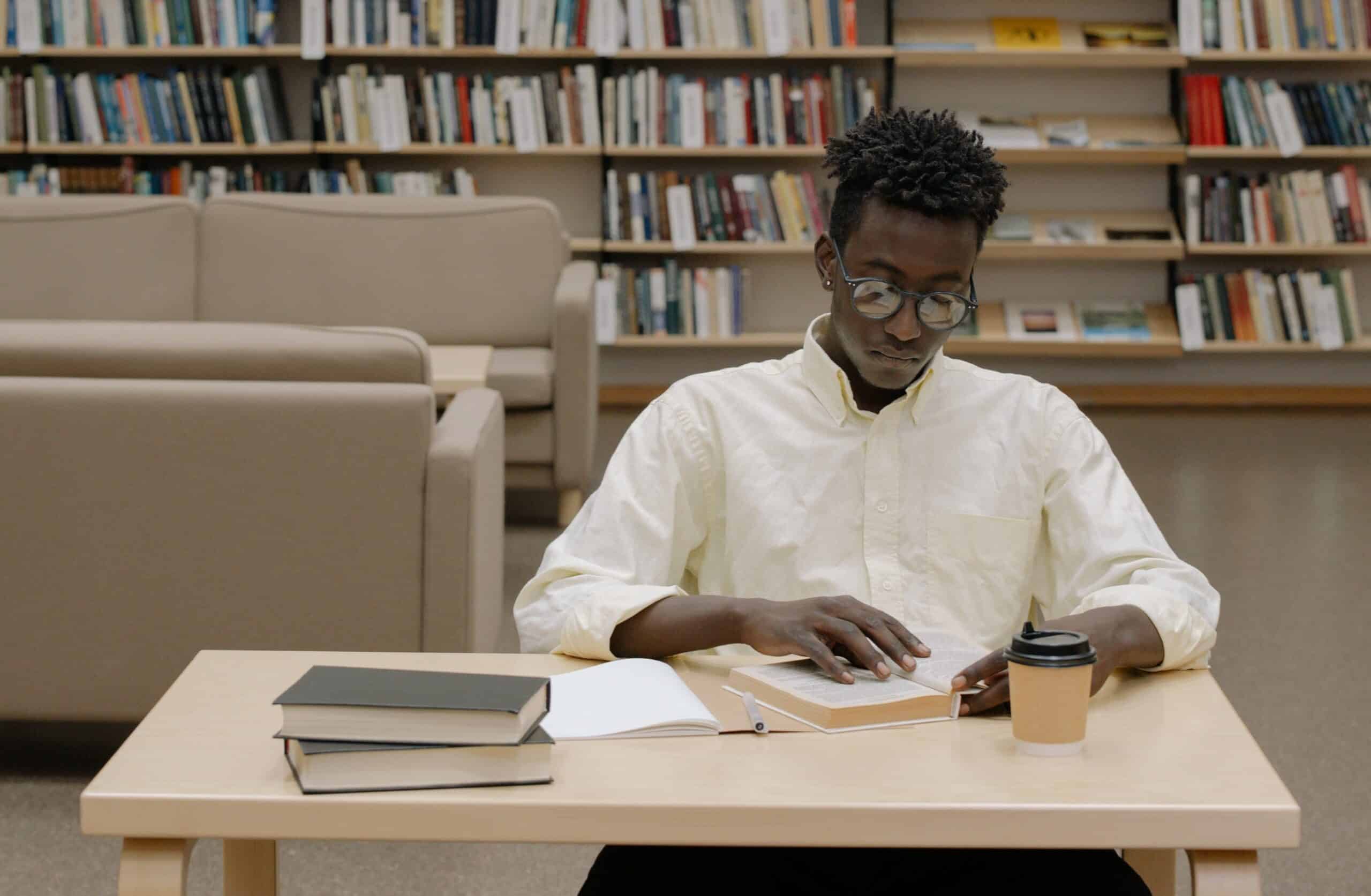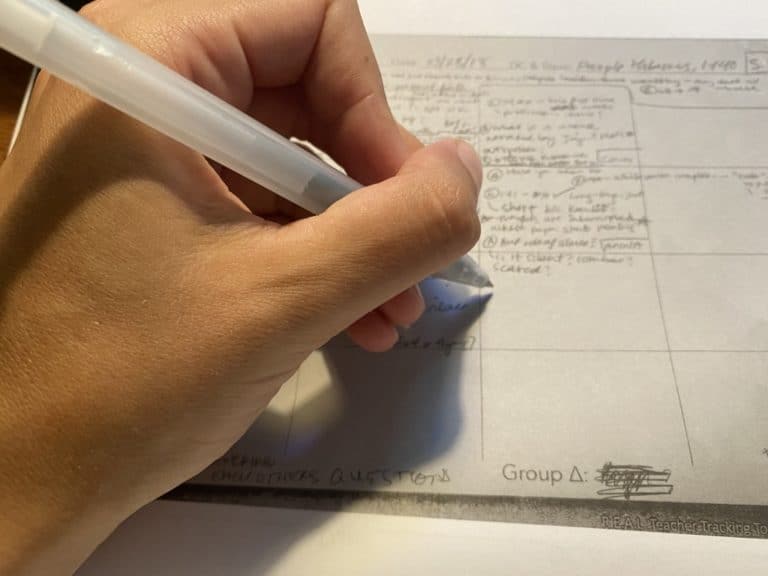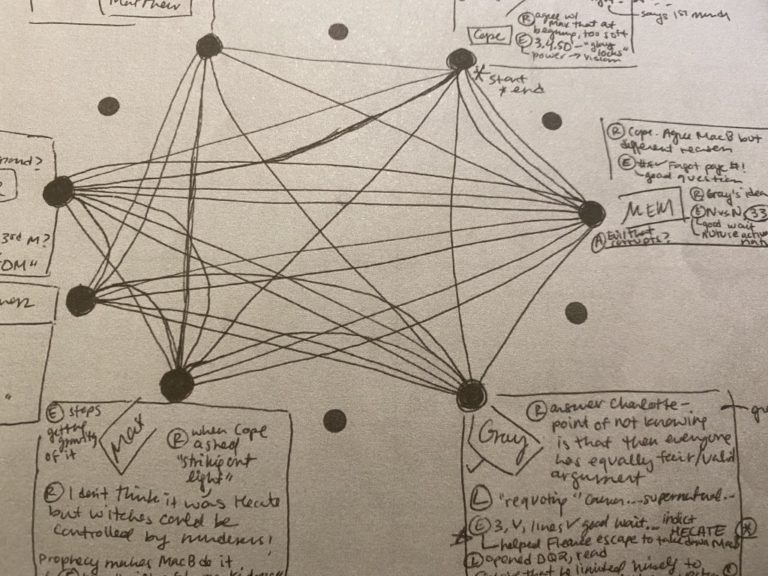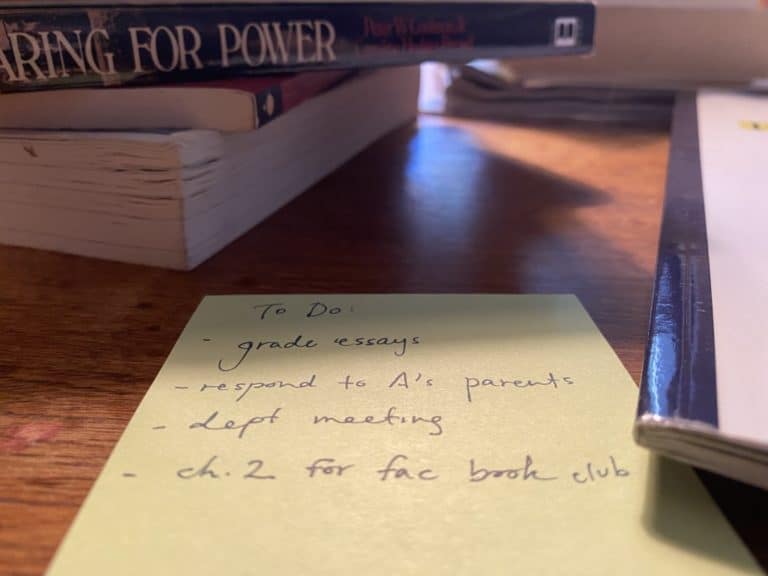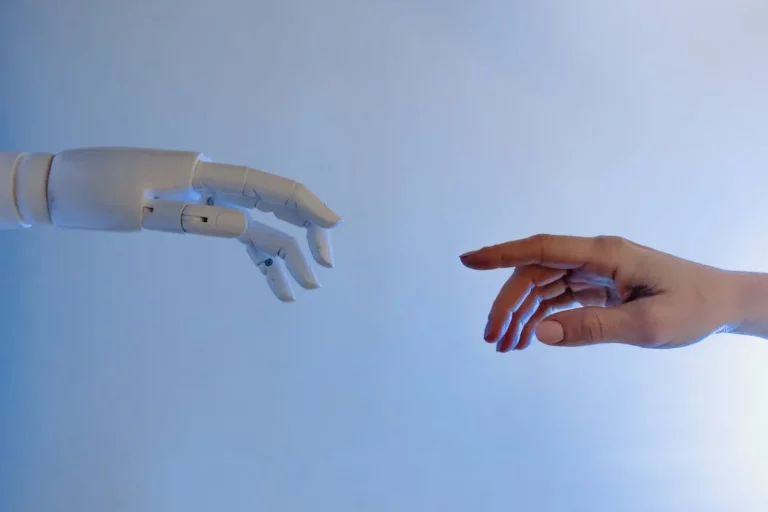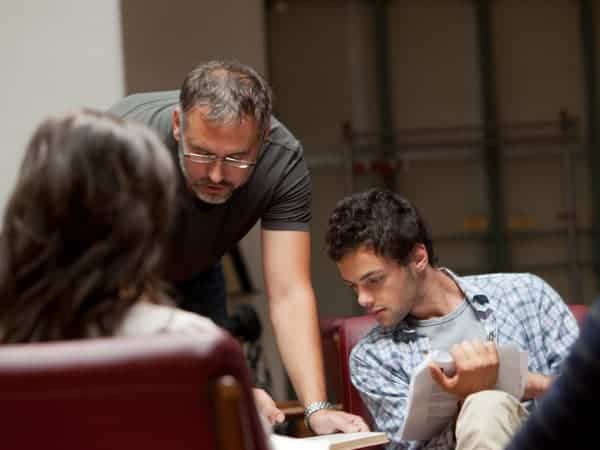Breaking It Down: The “R” in R.E.A.L.
R.E.A.L.® Discussion is a professional development program that empowers faculty to teach their students how to thrive in discussion – in the classroom, in the cafeteria, on the court, and in their communities. R.E.A.L.® gives faculty and students shared language and classroom routines to make discussion come alive in their classrooms.
The whole system is based on the four R.E.A.L.® Skills, an acronym that breaks the art of discussion into teachable and transferable skills for a generation of students who would rather text than talk. The four skills are Relate, Excerpt, Ask and Listen – and the program teaches students to practice, master, and reflect on each.
In this series, we’re walking you through each R.E.A.L.® skill. Today, we’re starting with R – for relate.
Relating: Skills and Habits
What does relating during discussion look like? It can first be helpful to identify what it does not look like: one student makes a point; another claims to agree, then offers her own point that reflects what she had originally felt like saying rather than truly building on — or relating to — the conversation currently happening. Or, even worse: students attempt to relate to each other by disagreeing (and, often, disagreeing disrespectfully).
In our program, we name the foundational discussion skill – in this case, RELATING – then identify “habits” students can practice in order to master that skill. We also offer sentence stems and examples for students to mimic as a starting point. Students almost never use the same content as demonstrated in our examples – so right off the bat, students can see that these skills are transferable across different types of conversations.
For example: if one Relating habit is “Relate the Text to Yourself, other Texts, or the World,” a middle school example might sound like:
“The lesson I take away from Odysseus’ blinding the Cyclops is actually something my coach tells me: figure out how to use the other team to help YOU win. That’s what Odysseus does when he chooses to blind, but not kill, the Cyclops so that he will help move the boulder blocking the exit.”
This is a powerful example, because the student creates his own meaning of a classic text by relating his personal experience to Odysseus’. This ability to find a relatable human experience in a story that initially may feel foreign to a Gen-Z student helps them in and beyond classroom discussion.
A second example: if another Relating habit is “Relate your Ideas to your Classmates: Agree, Disagree, Compromise, Synthesize” a high school example could sound like:
“Sarah, I understand your reasoning that Lady Macbeth is responsible for her husband’s bad behavior, because it’s her idea to kill Duncan! But for me, the Witches are more responsible, because they are the ones who plant the seed of ambition. If they weren’t there, none of this would have happened…”
Here, the student is practicing respectful disagreement by first paraphrasing her classmate’s idea to demonstrate listening and accurate understanding. She then offers an alternative perspective in a respectful, non-personal way. As one ninth grade English teacher is fond of saying – “R.E.A.L. ® helps my freshmen learn how to get comfortable disagreeing with each other’s ideas – not their entire identities!”
By providing these specific skills, habits, and examples – along with routines for practice and reflection – R.E.A.L.® helps teachers demystify discussion for students, opening the door to rigorous and equitable classroom conversations.
Relating is just the first skill our program helps students master, but it’s a powerful one with measurable impact. Our data show that relating helps students feel more confident about how to speak up. This in turn encourages more voices to join the conversation, and students report feeling more connected to each other. Importantly, we also see students employ these habits outside the humanities classroom, which brings a rich and respectful diversity of perspectives to the campus community.
Want to learn more about Relating and R.E.A.L.®’s other three foundational skills? Reach out to our team for a conversation today.
